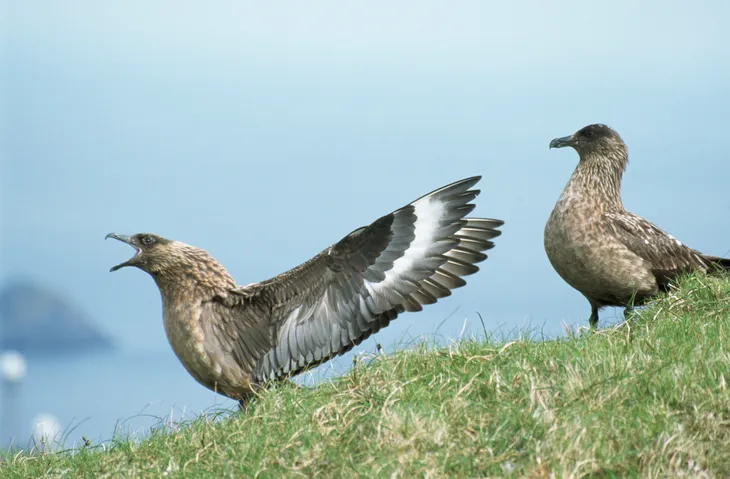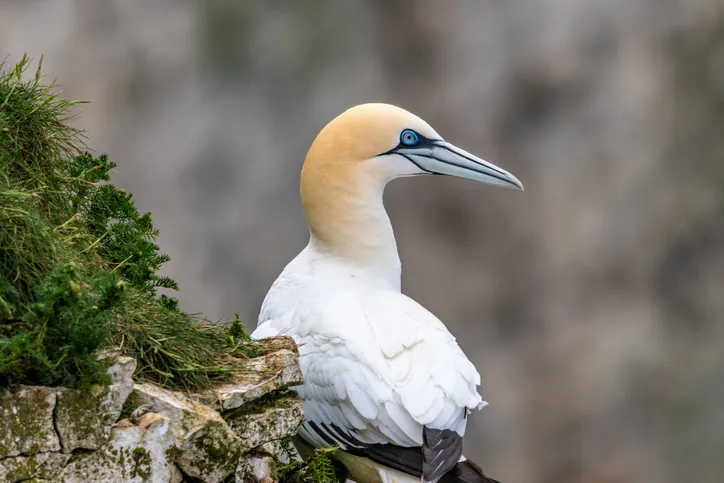The first report to assess the effect of avian flu on the UK's globally important populations of seabirds has revealed that it has had a catastrophic impact.
One of the hardest hit species was the great skua. More than three quarters of its population has been lost, with at least 2,500 birds reported dead across Scotland, which is home to 60% of the world's great skuas.
- Polar bear killed by bird flu in Alaska as virus continues to spread around the globe
- Why China is the source of the disastrous avian flu (bird flu) outbreak

Impact of bird flu on UK seabirds
Other badly hit species include the gannet, with at least 11,000 deaths recorded in Scotland. There was a 25% drop in numbers across the UK, which supports over half of the world's gannets.
Gannets breed in a small number of densely packed colonies, which means that they are particularly vulnerable to the spread of the disease. This resulted in one of the biggest population crashes amongst seabirds, with a 54% collapse in gannet numbers in Wales, where 5,000 deaths were recorded on the RSPB island reserve of Grassholm in the west of the country.
The report also revealed that avian flu has caused a 21% decline in the UK population of roseate terns, the UK’s rarest breeding seabird.
"More than three quarters of Britain's great skua population has been lost."
The H5N1 strain of avian flu spread to wild birds in 2021 with devastating consequences.
“The findings from this new report are extremely worrying, confirming avian flu to be a major additional threat to our already struggling seabirds,” says Jean Duggan, policy assistant on avian flu at the RSPB, which carried out the research alongside British Trust for Ornithology and other conservation bodies.
“We knew the situation was bad for gannets and great skuas in particular, but it’s worse than we thought.”

Sandeel fishing ban: good news for seabirds
Meanwhile, in some welcome good news, the long-term future of the UK’s threatened seabirds – including gannets and great skuas – is looking more hopeful following the banning of industrial sandeel fishing in the English North Sea and in all Scottish waters.
The move represents a significant victory for environmental groups which have been campaigning for a ban for decades.
“The closure of sandeel fisheries will be a vital lifeline for our seabirds,” says Jean Duggan. “Now we need to build on this progress with further action to increase resilience and safeguard their future.”
